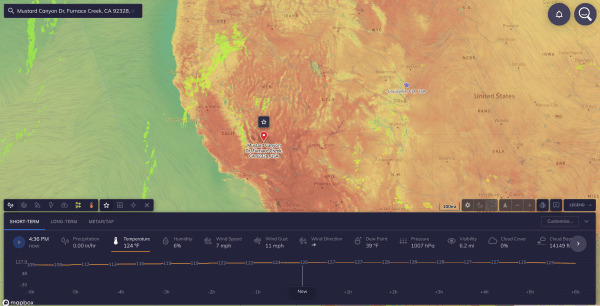Heat Health Recommendations
Health agencies can be instrumental in reducing heat vulnerability by promoting health education. Heat health recommendations increase public awareness of heat vulnerability and ensure people are educated on how to stay healthy and avoid heat stress.
Increasing public awareness of heat vulnerability through education can reduce heat-related emergency room visits by 14% each summer.
Pharmacy A
Hospital B
Insight In this Dashboard
severity - 4 extreme
Avoid Outdoor Exercise: Heat Illness Risk
Inform the community that outdoor physical activity during these hours should be avoided. Staying indoors will help reduce heat illness.
severity - 3 sever
Increase Fluid Intake: Dehydration Risk
The current heat index is above 105. Individuals should be drinking at least 1 gallon of water per day for at least 3 days in order to avoid heat-related illnesses caused by dehydration.
severity - 3 sever
Promote Sunscreen Protection: Extreme Heat
Heighten awareness about sun damage risks and promote using sunscreen. Hand out free samples at clinics or wherever possible.
severity - 4 extreme
Reduce Alcohol Intake: Severe Heat
Encourage bars and restaurants to lower alcohol sales during these hours. Given the heat outside, people need to hydrate with water and electrolytes. Alcohol causes people to lose more body fluid and therefore increases heat risk.
severity - 4 extreme
Park in Shade: Car Heat Risk
When the current outside temperature is this high, the inside temperature of the car can feel 10 degrees warmer. Encourage people to park cars in shaded areas to mitigate risk. Remind drivers to not let anyone in the car without turning on the AC first.
severity - 4 extreme
Increase Communication: Excessive Heat
Send out SMS reminders to local residents about existing heat conditions. Advise them to stay hydrated, avoid physical outdoor activity, and monitor symptoms.

